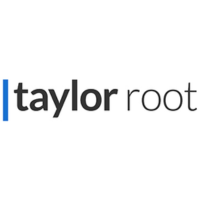
Group head - legal | Easa Saleh Al Gurg Group




Tobias Speer
Group head - legal | Easa Saleh Al Gurg Group
Team size: 11
Could you share an example of a time when you came up with an innovation that improved how your legal team works and did not come at a large expense?
We are generally mindful that investments in the legal department are limited and try to optimise whatever resources we have available. We also participate in initiatives from the business and other head office functions that allow us to facilitate closer integration into the business processes without incurring additional costs. One of these solutions was participating in automating the procurement systems that were transferred to a semi-automated cloud platform for the self-registration of vendors. In this migration, we incorporated most compliance checks into this onboarding process. We could standardise many of the contracts used in these transactions to enhance the review and processing of future orders. Consequently, orders nowadays take only mere hours to process rather than multiple days.
How do you balance your responsibilities as a GC with your involvement in dispute resolution and M&A matters?
We have different sections in the legal department. One is the litigation section, with a dedicated dispute resolution and debt collection team. Further, we have a company secretary who takes care of the corporate governance, so my role mainly focuses on the advisory of the board and the top management. M&As will be handled in cooperation with external advisors; therefore, we have a good balance for these matters.
Can you foresee any key developments to the way general counsel work over the next five years?
The Middle East is increasingly catching up to European and US developments. We see immense pressure on companies to comply with not only sanctions and AML practices but also work fully transparently and completely satisfied with data protection and consumer protection requirements. These rapid shifts in requirements are very challenging for businesses, and general counsel are required more and more to educate the management and the executive functions on how to deal with these requirements and live the spirit of these new regulations rather than comply with the wording of the law.
What emerging technologies do you see as having the most significant impact on the legal profession in the near future, and how do you stay updated on these developments?
Most of my colleagues (and, in fact, my management) think AI will be a big game changer. And while I do not dispute that AI will have a significant effect, it will take longer than many anticipate. It will first be implemented in law firms where the need for innovation and optimisation is more significant than in an in-house environment. On the other hand, many legal departments, especially in the Middle East, are far from utilising the possibilities that are already available, and here, I see a significant shift over the coming years. Paper will vanish increasingly from our offices, and more and more contracts will be signed digitally only. The automatisation will reduce legal reviews if not make them obsolete. It will be more essential to have fully integrated solutions for contract management rather than standalone software that isn’t flexible enough to allow adjustments to the business needs. I hope that the routine and administrative work will decrease and that companies focus on using their lawyers/counsel for the specific work they are trained for, advising and mitigating legal risks.
Group head of legal | Easa Saleh Al Gurg Group
Group head - legal | Easa Saleh Al Gurg Group
Group head of legal | Easa Saleh Al Gurg Group